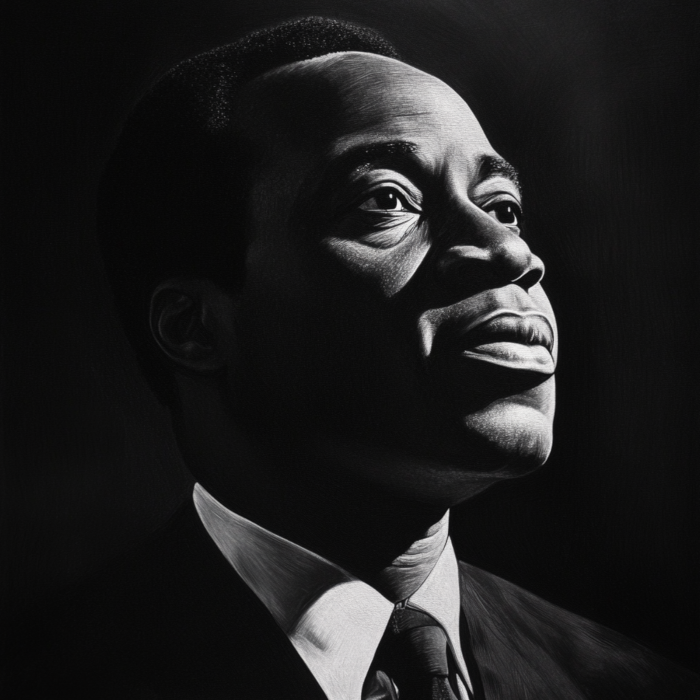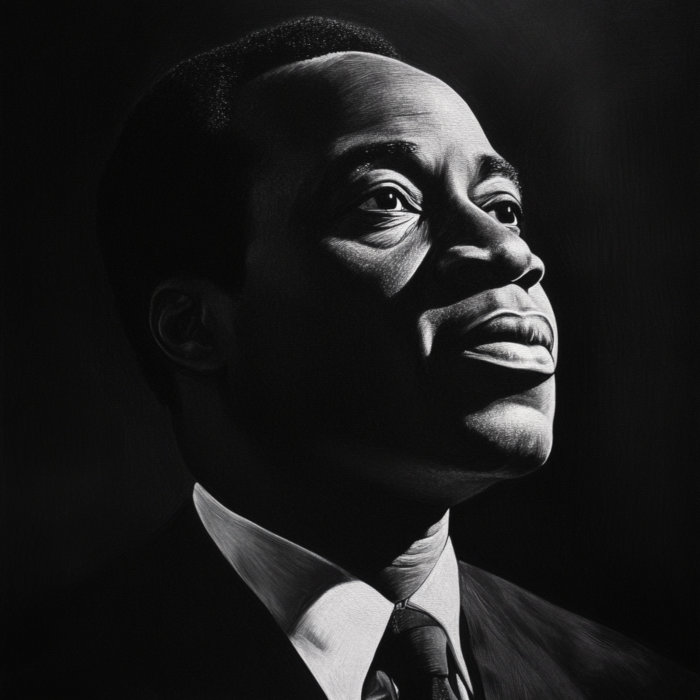


Kwame Nkrumah (1909–1972) was a Ghanaian politician, revolutionary, and the first Prime Minister and President of Ghana, having led the country to independence from British colonial rule in 1957. Nkrumah was a major advocate for Pan-Africanism, socialism, and the unity of African nations. His vision and leadership made him one of the most influential figures in the history of Africa’s struggle for independence and decolonization.
Birth and Background: Kwame Nkrumah was born on September 21, 1909, in Nkroful, a small village in the Western Region of what was then the Gold Coast, a British colony. His parents were of modest means, and Nkrumah was raised in a traditional Akan household. His early exposure to the colonial system and its inequalities deeply influenced his later political beliefs.
Education: Nkrumah was a bright student and attended Achimota School in Accra, where he was introduced to Western education and ideas. After completing his education in the Gold Coast, he worked briefly as a teacher before moving to the United States in 1935 to pursue higher education. He attended Lincoln University in Pennsylvania, where he earned a bachelor's degree in economics and sociology in 1939. Nkrumah continued his studies at the University of Pennsylvania, earning a Master of Science in Education and a Master of Arts in Philosophy in 1942 and 1943, respectively.
Involvement in Pan-Africanism: While in the United States, Nkrumah became deeply involved in Pan-Africanist activities, inspired by figures like Marcus Garvey and W.E.B. Du Bois. He was active in African student organizations and was influenced by the ideas of socialism and anti-colonialism. In 1945, Nkrumah moved to London, where he continued his political activism and became a leading figure in the Pan-African movement. He helped organize the Fifth Pan-African Congress in Manchester, which played a crucial role in mobilizing African leaders and intellectuals for the cause of independence.
Return to the Gold Coast: In 1947, Nkrumah returned to the Gold Coast at the invitation of the United Gold Coast Convention (UGCC), a political party that sought self-government for the colony. Nkrumah was appointed the party's General Secretary, but his more radical approach soon led to a split with the UGCC leadership. In 1949, he formed the Convention People's Party (CPP), which called for "self-government now" and adopted a more assertive stance against colonial rule.
Positive Action Campaign: In 1950, Nkrumah launched the Positive Action campaign, which included strikes, boycotts, and civil disobedience to pressure the British authorities for independence. The campaign led to his arrest and imprisonment, but it also galvanized support for the independence movement. While in prison, Nkrumah’s popularity soared, and in the 1951 legislative elections, the CPP won a decisive victory. The British colonial government was forced to release Nkrumah, and he was appointed Leader of Government Business, effectively becoming the Prime Minister of the Gold Coast.
Path to Independence: Nkrumah continued to push for full independence, and on March 6, 1957, the Gold Coast became the independent nation of Ghana, the first African country to achieve independence from colonial rule. Nkrumah became the country's first Prime Minister, and later, in 1960, when Ghana became a republic, he was elected its first President.
Pan-Africanism and African Unity: Nkrumah was a staunch advocate of Pan-Africanism, the idea that African nations should unite politically and economically to resist neocolonialism and foster development. He envisioned a united Africa that could stand as a global power, and he worked tirelessly to promote African unity. In 1963, Nkrumah played a key role in the establishment of the Organization of African Unity (OAU), the precursor to the African Union (AU).
Domestic Policies: Domestically, Nkrumah pursued ambitious development plans aimed at transforming Ghana into a modern, industrialized state. He initiated large-scale infrastructure projects, including the construction of the Akosombo Dam, which provided hydroelectric power. He also invested in education, healthcare, and social services. However, his policies were often implemented through a centralized and authoritarian approach, leading to criticism of his governance style.
Economic Challenges: Despite his vision for development, Nkrumah’s economic policies faced significant challenges. His government embarked on a program of rapid industrialization, but many of the projects were poorly planned and economically unsustainable. The country's economy became increasingly strained, and by the mid-1960s, Ghana was facing a severe financial crisis.
Overthrow and Exile: Nkrumah's increasingly authoritarian rule, coupled with economic difficulties, led to growing domestic dissatisfaction. In February 1966, while Nkrumah was on a state visit to North Vietnam and China, his government was overthrown in a military coup. The coup was supported by elements within the Ghanaian military and police, and there is evidence to suggest that it was backed by the CIA due to Nkrumah's leftist policies and alignment with the Soviet Union. Nkrumah never returned to Ghana and lived the rest of his life in exile in Guinea, where he was granted asylum by President Ahmed Sékou Touré and made honorary co-president of the country.
Death: Kwame Nkrumah died of prostate cancer on April 27, 1972, in Bucharest, Romania, where he had gone for medical treatment. His body was returned to Ghana, where he was given a state funeral.
Legacy: Nkrumah's legacy is complex and multifaceted. He is celebrated as a visionary leader who played a pivotal role in the decolonization of Africa and the promotion of Pan-Africanism. His efforts to unite Africa and his vision of a self-reliant, industrialized continent continue to inspire African leaders and intellectuals. However, his tenure as Ghana’s leader is also criticized for its authoritarianism, economic mismanagement, and the suppression of political opposition.
Memorials and Honors: Nkrumah's contributions to African independence and unity have been widely recognized. Accra, Ghana’s capital, is home to the Kwame Nkrumah Mausoleum, where his remains are interred. Many institutions, streets, and buildings across Africa are named in his honor. His writings, including Africa Must Unite and Neo-Colonialism, the Last Stage of Imperialism, remain influential in discussions of African political and economic thought.
Kwame Nkrumah was a towering figure in African history, whose life and work left an indelible mark on the continent. As the leader of Ghana's independence movement and a champion of Pan-Africanism, Nkrumah's vision of a united, independent, and self-sufficient Africa continues to resonate today. His leadership, though marked by both achievements and controversies, remains a source of inspiration for those who seek to advance the cause of African unity and progress.

We use cookies
We use cookies and other tracking technologies to improve your browsing experience on our website, to show you personalized content and targeted ads, to analyze our website traffic, and to understand where our visitors are coming from. Privacy Policy.